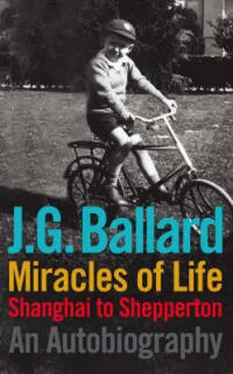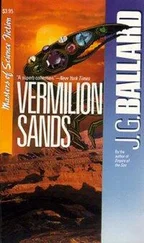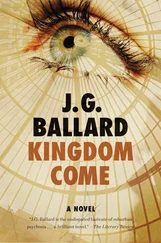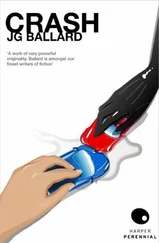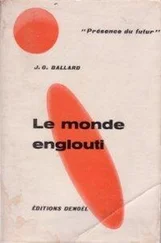With their villages and rice fields destroyed, thousands of destitute peasants from the Yangtze basin flocked to Shanghai and fought to enter the International Settlement. They were viciously repelled by the Japanese soldiers and by the British-run police force. I saw many Chinese who had been bayoneted and lay on the ground among their bloodstained rice sacks. Violence was so pervasive that my parents and the various nannies never tried to shield me from all the brutality going on. I knew that the Japanese were capable of losing their tempers and lunging with their fixed bayonets into the crowds pressing around them. Later, when I was eight or nine and began my long cycle rides around Shanghai, I was careful to avoid provoking the Japanese soldiers. They always waved me through the checkpoints, as they did the Europeans and Americans. Sometimes they would check our family Buick, but only when the chauffeur was driving.
I assume that the Japanese leadership had decided that Shanghai was of more value to them as a thriving commercial and industrial centre, and were not yet prepared to risk a confrontation with the Western powers. Most of my earliest memories date from this period, and life in Shanghai seemed to be an endless round of parties, lavish weddings, swimming club galas, film shows laid on by the British Embassy, military tattoos staged on the racecourse, glossy film premieres, all under the bayonets of the Japanese soldiers who guarded the perimeter checkpoints around the Settlement.
As soon as the fighting ended, the Cathedral Boys’ School moved from the cloisters of Shanghai Cathedral, not far from the Great World Amusement Park, and took over part of the Cathedral Girls’ School on the western edge of the International Settlement. I could now cycle to school, and no longer needed to be chauffeured in the family car, with the nanny keeping an interfering watch over me. I began to take longer and longer rides around the city, using the excuse that I was visiting the Kendall-Wards or other friends. I liked to cycle down the Nanking Road, lined with Shanghai’s biggest department stores, Sincere’s and the vast Sun and Sun Sun emporiums, dodging in and out of the huge trams with their clanging bells that forced their way through the rickshaws and pedestrians.
Everywhere I turned, a cruel and lurid world surged around me. Shanghai lived above all on the street, the beggars showing their wounds, the gangsters and pickpockets, the dying rattling their Craven A tins, the Chinese dragon ladies in ankle-length mink coats who terrified me with their stares, the hawkers wok-frying delicious treats which I could never buy because I never carried any money, starving peasant families and thousands of con men and crooks. Weird quarter-tone music wailed from Chinese theatres and bars, fireworks crackled around a wedding party, a radio blared out the speeches of Generalissimo Chiang, interrupted by commercials for a Japanese beer. I took all this in at a glance, the polluted and exciting air I breathed. If they were in the mood, the British soldiers in their sandbag emplacements would invite me into their dark interior world, where they lounged about cleaning their equipment. I liked these Tommies with their strange accents I had never heard before, and they let me clean their rifles and use the pull-throughs to ream the rust from their barrels, then gave me a bronze cap badge as a present. They told wonderfully broad stories of their service in India and Africa, and Shanghai to them was just another name on the map. I explored almost every corner of the International Settlement, and schoolfriends and I would play games of hide-and-seek that covered the whole city and could last for months. It amazes me now that none of us ever came to any harm, and I assume that the thousands of plain-clothes Chinese police agents in effect kept watch over us, warning away any petty crook tempted to steal our cycles or pull the shoes from our feet.
In fact, the greatest danger we faced probably came from the Sunday afternoon trips we took with our parents and their friends to the recent battlegrounds to the south and west of Shanghai. Convoys of chauffeur-driven Buicks and Chryslers would move through the stricken land, wives in their silky best. The battlefields must have reminded some of the older British of the Somme, with their endless networks of eroded trenches, crumbling earth blockhouses and abandoned villages. Around our feet when we stepped from the cars was the bright gold of spent cartridges, lengths of machine-gun ammunition, webbing and backpacks. Dead horses lay by the roadside, enormous ribcages open to the sky, and in the canals were dead Chinese soldiers, legs stirring as the current flowed through the reeds. There was a feast of military souvenirs, but I was never allowed to keep even a bayonet – many European sightseers had been killed, and a boy at school lost a hand when a grenade exploded. Then the convoy would roll on, carrying everyone back to the safety of the International Settlement and large gins at the Country Club.
Another treasure hunt to which I very keenly looked forward took place when we visited friends of my parents in the countryside to the west of Shanghai. They held large lunch parties, after which the children were left to themselves while the nannies gossiped and the chauffeurs polished their cars. I would slip away, duck through a gap in the fence and run across two dried-out rice paddies to an abandoned Chinese military airfield. There was a single empty hangar, but on the edge of the airfield, forgotten in the long grass, was the shell of a Chinese fighter plane. I managed to climb into the cockpit, and would sit on the low metal seat, surrounded by the grimy controls. It was a magical experience, more exciting than any funfair ride, not because I could imagine the sounds of battle, machine-gun fire and rushing air, but because I was alone with this stricken but mysterious craft, an intact dream of flight. I visited it three or four times, whenever there was a lunch party, and if one of the adults saw me slipping through the fence I would say that I was looking for a lost kite, which in a sense I was. On my last visit, as I stepped out onto the airfield, several Japanese soldiers were inspecting the hangar and ordered me away. Years later, this small airfield became the site of Shanghai International Airport. In 1991, when I stepped down the gangway of the Airbus that had brought me to Shanghai from Hong Kong, I could almost sense the presence of a small boy still sitting in his Chinese fighter, unaware of the years that had flown past him.
My sister Margaret (now Margaret Richardson, until recently director of the Soane Museum) was born in 1937, but the seven-year gap between us meant that she never became a childhood friend. When I was 10 she was still a toddler. I was busy with my exploration of the International Settlement, and my prolonged but unsuccessful attempts to fraternise with the Japanese soldiers who manned the check-points into the city. There was a strain of melancholy in the Japanese that I responded to, although I myself was never sad. I had a natural optimism that I only lost when I arrived in England, and I was probably hyperactive, in today’s jargon. I was always on the go, whether playing my intense private games with my model soldiers, leading the Kendall-Ward boys on an expedition to a ruined factory I had discovered, or exploring some unknown corner of the Shanghai suburbs.
The most visible features of the flat landscape beyond Amherst Avenue were the family burial mounds built onto the retaining walls of the paddy fields. The water table was only three feet below the surface of the ground, and none of the villagers buried their dead beneath the soil (at one time I went through a well-digging phase, sinking half a dozen wells into the flowerbeds in our garden until the gardener protested). The mounds could be six to ten feet high, a pyramid of coffins covered with soil that the heavy rains would wash away. Unless regularly maintained, the coffins would emerge into the daylight.
Читать дальше
